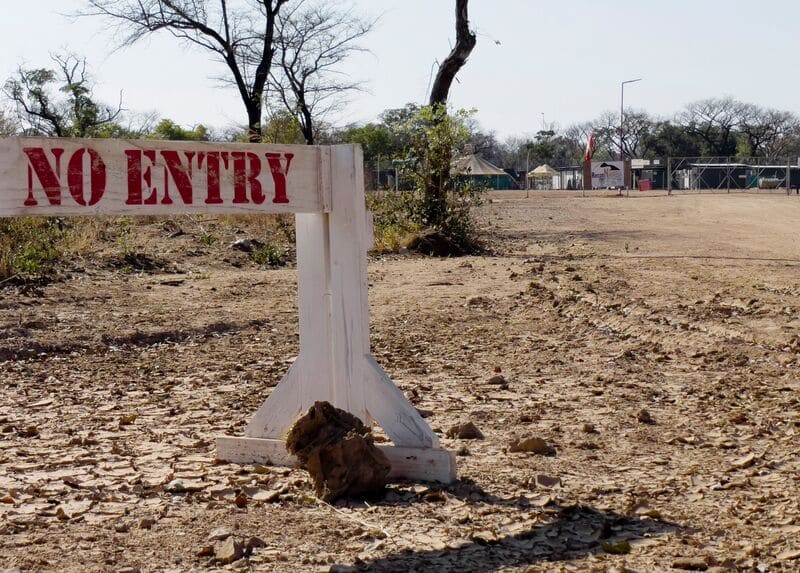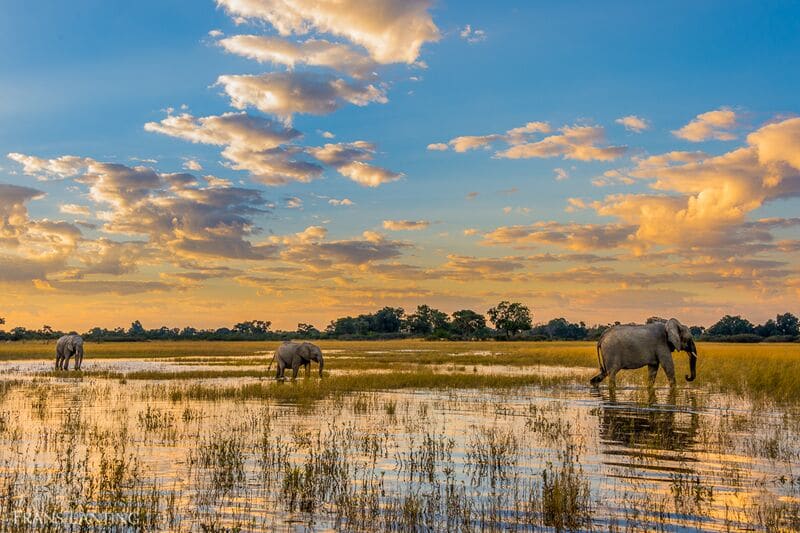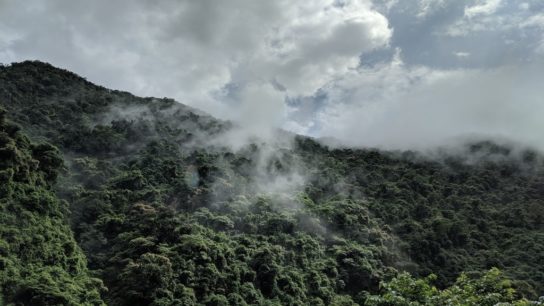World leading environmentalists and environmental activists are urging for an immediate moratorium on oil drilling and exploration in one of most important ecosystems in Africa.
—
Prince Harry The Duke of Sussex, Leonardo DiCaprio and Forest Whitaker join a number of local Indigenous and leading conservationists in Namibia and Botswana including Anita Lekgowa and Reinhold Mangundu, calling for an immediate moratorium on corporate oil drilling in the Okavango River Basin in Africa.
The Okavango River Basin is a transboundary basin with a network of river systems traversing through Angola, Botswana and Namibia, and supplies water to nearly 1 million Indigenous and local people, as well as the region’s wildlife population. The Basin also encompasses the Okavango Delta, a UNESCO World Heritage site renowned for its rich biodiversity, as well as two Ramsar wetland sites of international importance.
However, a Canadian oil and gas company, Reconnaissance Energy Africa (ReconAfrica), has managed to secure licenses for oil exploration in a 13,200-square-mile area across Namibia and Botswana, and began drilling within the Okavango River Basin at the end of 2020.
Local leaders and activists have publicly criticised ReconAfrica for not adequately consulting local communities including the Indigenous San peoples – one of the oldest known cultures in the world – and that their drilling practices lack sufficient environmental safeguards to prevent the pollution of the region’s sole source of water, not to mention placing the already endangered wildlife at greater risk. Wastewater from these drilling sites risk leaking and contaminating the groundwater and ephemeral rivers that connect to the Okavango River and Delta in Botswana. The water supply is already under great threat due to worsening drought conditions and climate change.
“We are particularly concerned about the lack of genuine consultation with Indigenous San communities, including women, who will be affected by toxic damage to their lands, their waters, plants, animals and the people themselves through the exploration and extraction of gas and oil in the region,” said Nadia April, San Indigenous Women programme officer for the Women’s Leadership Centre in Windhoek, Namibia, at a recent WLC press conference. “If ReconAfrica is allowed to continue, this will severely disrupt the way of life of Indigenous people through dispossession of their ancestral land, and poisoning of water and land that they depend on for survival.”

You might also like: Oil Pollution and Spills: Who Is Responsible?
What’s more, ReconAfrica has recently begun 2D seismic testing, which requires land from critical wildlife habitats to be cleared. Other land development such as roads and infrastructure to support oil and natural gas projects will increase risks of poaching and human-wildlife conflict as well.
Prince Harry and Namibian activist Reinhold Mangundu recently submitted an op-ed in the Washington Post, echoing the message in an open letter signed by many world leading environmentalists and environmental activists calling for an immediate moratorium on ReconAfrica’s corporate oil drilling. They’re also demanding for a more transparent, inclusive process where “sustainable, alternative energies are prioritised for the benefit of local communities”.
Scientists, environmentalists, and local communities alike fear that continued drilling activity will cause irreversible damage to the natural life-sustaining ecosystem, and destroy the natural resources that hundreds of thousands of people in the region depend on.
“As the environment is destroyed, people are going to lose the forest fruits and other things there that they depend on for survival.” said Rinaani Musutua, trustee of the Economic & Social Justice Trust. “Their traditional way of living off the forest is going to be destroyed by this company. It will mean their food is gone, their fruits, the roots that they live on, all of the natural things that they depend on for their survival will be gone someday. If we destroy it, that means it’s the end of us as well. That makes them really live in fear.”
Featured image by: ©Frans Lanting


















